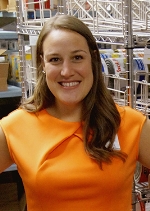
Warning: You may feel salty after reading this.
No, I’m not expecting you to be upset. I mean that you’re going
to realize just how prevalent sodium is in our food supply, and you’ll
literally feel full of salt after reading this.
Now, humans NEED salt. We have to have it, as sodium plays critical roles
in nerve signal transmission, body water balance, and many other functions
throughout the body. Most adolescents and adults need around 2,300 mg
of sodium per day. That’s equivalent to about one teaspoon of table
salt. Someone who has a blood pressure concern or other health concerns
likely needs even less sodium.
Unfortunately, less than one-third of Americans’ daily sodium intake
comes from salting food at the table, according to the
Centers for Disease Control and Prevention (CDC). That means that more than 70 percent of sodium intake comes from
foods themselves, such as processed and ready-to-eat foods. That’s
because salt is an excellent natural preservative and flavor. Check the
Nutrition Facts label for sodium content, and you’ll find sodium
in nearly everything packaged. While it may not seem like a big deal,
it can add up quickly with the many foods we eat daily.
Ways to Reduce Sodium Intake
There are lots of strategies to help lower sodium intake. Try these tricks
to help avoid excess sodium in your food:
- Offset sodium with natural potassium sources from extra fruits and veggies
- Keep an eye on portion sizes, particularly of prepared foods
- Limit cured foods like cold cuts and sausages
- Choose “no salt added” canned foods, or rinse the regular version,
if possible
- Select lower sodium packaged foods
- Remove the salt shaker from the kitchen table
- Increase consumption of whole grains
- Choose plant-based protein sources like beans and peas
- Enjoy unsalted nuts in place of crackers or chips
 Jamie Marchetti, MS, RDN, LD, is a
Registered Dietitian at Campbell County Health in Gillette, Wyoming. For a one-on-one nutrition
counseling session, call 307.688.1731. Learn more at
www.cchwyo.org/diet.
Jamie Marchetti, MS, RDN, LD, is a
Registered Dietitian at Campbell County Health in Gillette, Wyoming. For a one-on-one nutrition
counseling session, call 307.688.1731. Learn more at
www.cchwyo.org/diet.